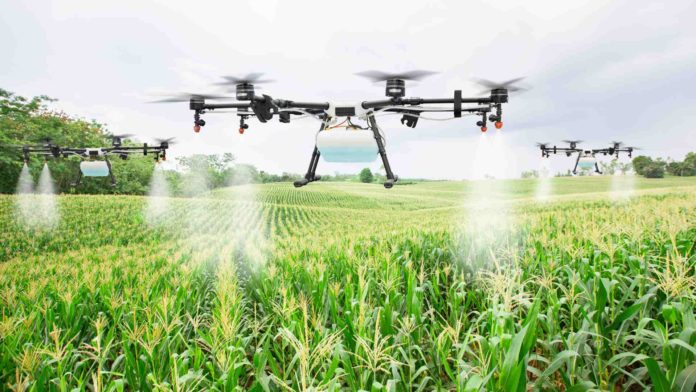Farmers in Uganda have been urged to upgrade to precision agriculture. According to New African report, African farmers are missing out on agritech innovations that could supercharge the farming sector with opportunities for youth.
The report surveyed 29,900 youths, 299 smallholder farmers and 110 agriculture technology start-ups, innovation hubs and technology organizations in Uganda, Ethiopia, Ghana, Kenya, Malawi, Nigeria, Rwanda, Senegal, Tanzania, Zambia and Zimbabwe. It identifies challenges faced by smallholder farming communities and potential areas for innovation and growth.
The Uganda Bureau of Statistics (Uboa) 2020 report estimated that about 70% of Uganda’s working population is employed in agriculture and sector growth is also impaired by the lack of quality packaging capabilities, insufficient storage facilities, poor post-harvest handling practices, shortage of agricultural credit, high freight costs, the lack of all-weather feeder roads in rural areas, a complicated and inefficient land tenure system, and limited knowledge of modern production practices.
Earth Observing System Data Analytics (EOSDA), a US-based satellite service provider and a global provider of artificial intelligence-powered satellite imagery, has urged Ugandan young farmers to take on the precision agriculture to overcome the challenges of low productivity and increase their income using smart farming technology.
Utilizing technology in agriculture
Rim Elijah, the director of Strategic Partnerships at EOS Data Analytics, said that precision agriculture is an approach to farm management that uses information technology to ensure that crops and soil receive exactly what they need for optimum health and productivity and it is also known as satellite agriculture as needed farming and site-specific crop management..
She added that when it comes to utilizing technology in agriculture, the precision agriculture approach is becoming the major trend, regardless of the current technology that’s being used whether that is sensors in the ground or drones and the uniqueness of satellite data lies in the ability to monitor large-scale fields from a distance.
Elijah further noted that Ugandan farmers have to understand that precision agriculture aims for sustainability by improving yield per unit area under cultivation (productivity) and favouring soil quality by balanced fertilizer application. Therefore, precision agriculture ensures sustainable food production and reduces environmental risks (soil degradation due to excessive use of chemicals).
“Ugandan farmers need to utilize the kind of technology that allows them to monitor the crops and utilize every grain in their fields to its full potential. This will not solve the food security problems in the nearest future entirely but it will at least help us meet some of this demand,” she explained.








